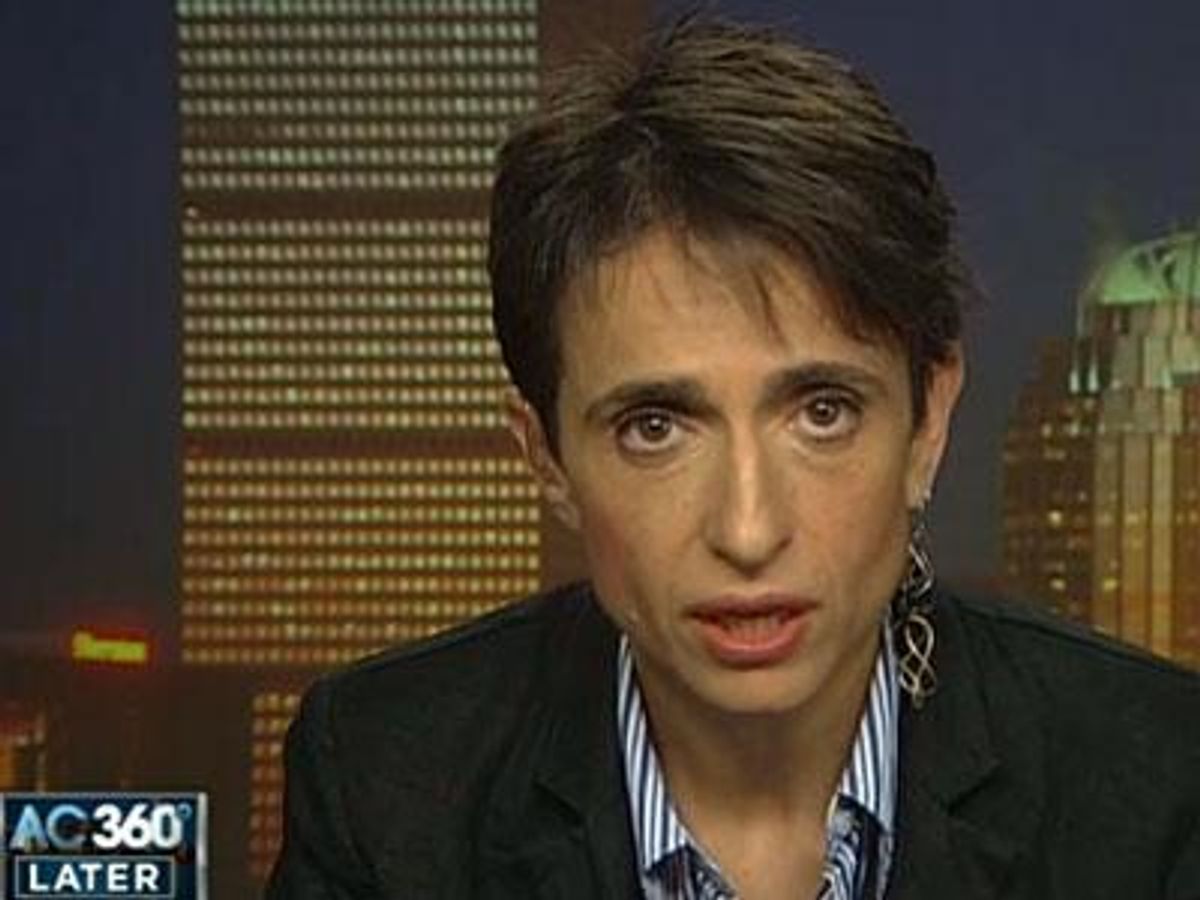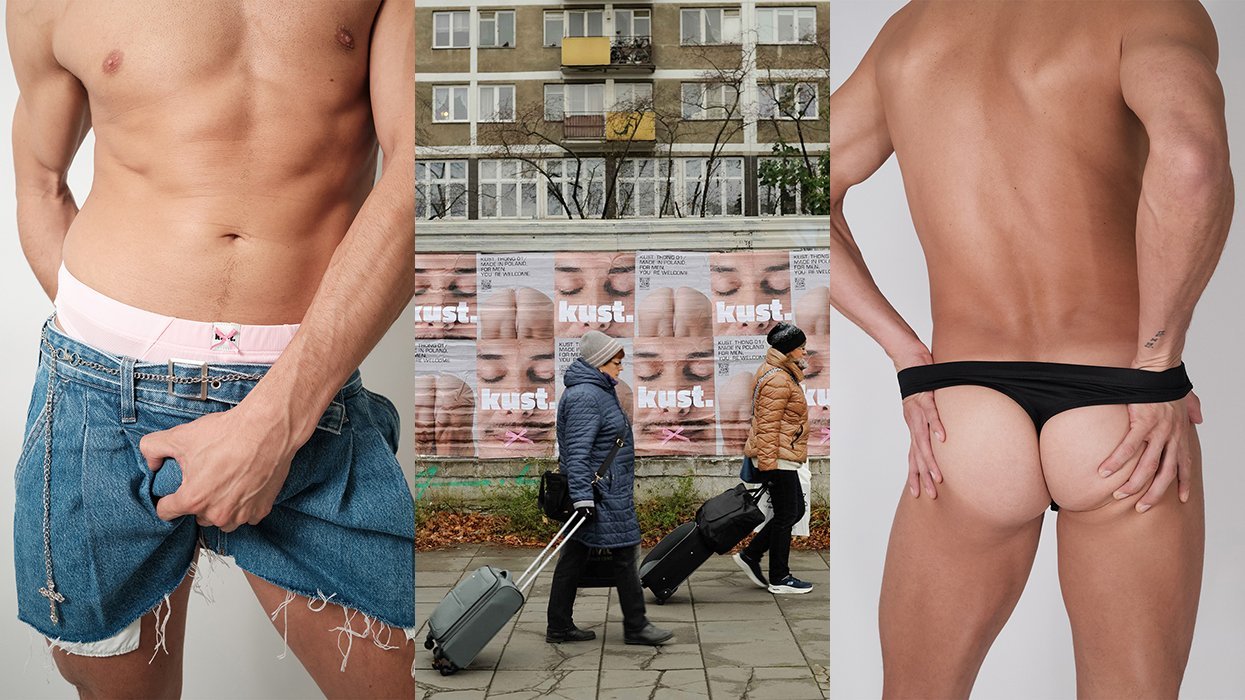Lesbian Russian journalist Masha Gessen participated in a roundtable discussion on CNN last week, where she continued her outspoken opposition to her home country's increasingly violent and far-reaching crackdown on LGBT people.
Gessen, a lesbian mother who has said she will leave Russia if proposed legislation to remove children from LGBT parents passes, spoke with CNN's Christiane Amanpour, Anderson Cooper, and gay pundit Andrew Sullivan.
President Vladmir Putin signed into law two anti-LGBT bills this summer, after both were passed unanimously by parliament. A ban on "propaganda of nontraditional sexual relations" imposes fines and jail time for any individual, organization, or media outlet that presents positive depictions of LGBT people or identities that could be visible to minors. In practice, the law amounts to a ban on being openly gay, with LGBT Russians and tourists arrested and beaten for peaceful gatherings where they unfurled rainbow flags or carried signs with pro-LGBT slogans. Another bill signed into law this summer prohibits gay or lesbian foreigners -- or single people from nations with marriage equality -- from adopting Russian orphans. And earlier this month, a state lawmaker introduced a bill that would authorize the state to remove children from the homes of LGBT parents, regardless of the parents' legal or biological relationship to the children.
Russia's increasingly oppressive anti-LGBT climate has come under heightened scrutiny as the nation prepares to hoist the 2014 Winter Olympics in the western province of Sochi. A recently revised version of Russia's symbolic Olympic Truce now contains a promise that the country will "promote social inclusion without discrimination of any kind," though it does not explicitly mention LGBT people.
On CNN last week, Sullivan dismissed calls for a boycott of the 2014 Games as "a little futile," suggesting instead that athletes, diplomats, and spectators should attend the Sochi Games and do so wearing a rainbow button.
Gessen, however, dismissed this tack.
"What you're talking about would be very effective if the problem were with the Russian people," she explained. "If what we wanted to confront was societal homophobia, then wearing a rainbow pin, engaging, might work. The problem is not with societal homophobia -- it's with the Kremlin's hate campaign. It's coming from up top, it's not coming from the public. And the message to the Kremlin, the message that really gets across, is snubbing. It's telling Putin that his life is going to be hell as long as these laws stand."
Watch Gessen's impassioned case for a boycott below.


















































































